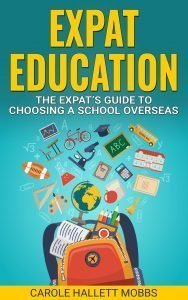School options overseas
When moving abroad with children, the main decision you will make is which school they will attend. This decision may also have a major impact on choosing where to live. And vice versa! Where you live may dictate which school your child goes to. For example, most international schools are located in large cities, so if you’re moving somewhere other than the capital, you’ll have fewer choices.
In general, the options you have available to you in larger cities are more varied than if you relocate to remote or rural areas. Other factors to take into account are the length of your stay in that country, financial issues, where you may move later, the education system your child is used to and where you will end up if you have to return to you home country. If you are moving permanently, it makes sense to enrol your child in the local school system. This ensures they pick up language skills and have truly local friends.
One truly deciding factor is financial. Although most state schools don’t charge fees, international schools do and these fees can be substantial. Unless you have a generous relocation package, you will need to budget for these costs and for extra-curricular activities as well.
Switching between curricula is hard for a child and may be detrimental to their education and well-being. This means you need to look far ahead into the future to enable your child’s education to follow a stable path with as little disruption as possible.
Most of the time, the education choices you have are:
- International school
- Local school
- Boarding school
- Home school
This is a very simplistic list, though and each category splits into many separate options. For example, international schools come in many flavours and run different curricula.
International school
Curricula differ from school to school, country to country. They usually offer a national curriculum other than that of the host country, such as British, French or American, or they may teach an international curriculum such as the International Baccalaureate. Or even a combination of these. Some may teach exclusively in English while some may teach in the host nation’s language for some lessons. Read International School articles on ExpatChild.com
Local school
Local school, especially if you will be settling permanently in that country, is a great choice. If your child has to learn a new language a local-language school will provide a full immersion culture necessary for true language skills to develop. Choosing a local school for your child will give them many benefits such as local friends and a true understanding of the culture of your host country. Read Local School articles on ExpatChild.com
Boarding school
Whether in your home country or elsewhere, boarding school is an option for those children who need stability of education. This is especially true for families who move around a lot as changing schools can become very difficult for many children. Read Boarding School articles on ExpatChild.com
Home school
Educating your child at home is sometimes the only option for many families, especially if you live in a remote area or if your child has special needs not catered for in schools. Of course, there are many other reasons for choosing to home school your child but do be aware that in many countries home educating is actually illegal. Research your new location well. Read Home Education articles on ExpatChild.com
So do your research and planning carefully. Look several years into the future and think about where you will be living then. Ask for recommendations from people already living in that country but remember, each child is different so a school that suits one child may not suit yours.
For more information and advice on choosing a school overseas for your child, please check out my book – Available on Amazon, worldwide.
Expat Education: An Expat’s Guide to Choosing a School Overseas

